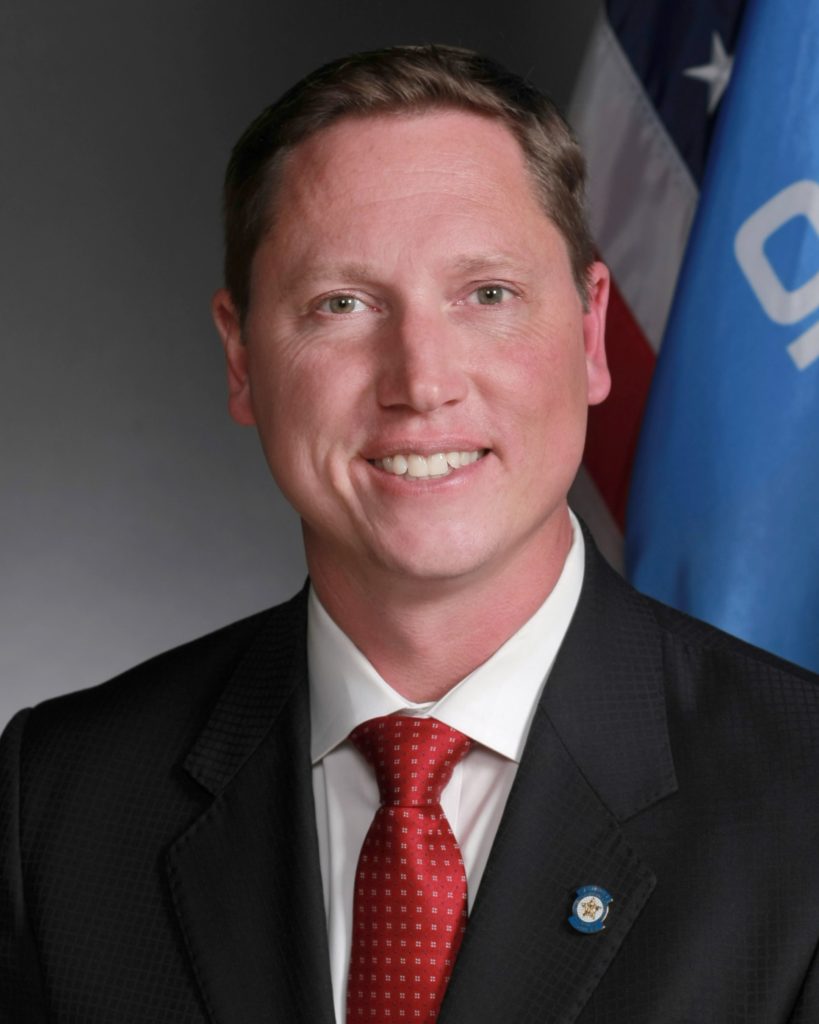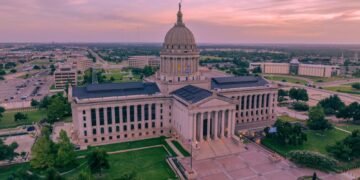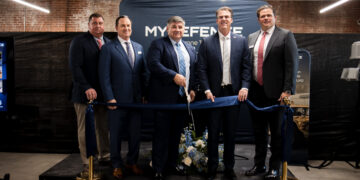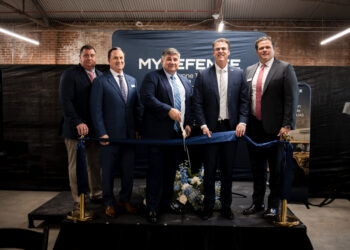OKLAHOMA CITY (OBV) – Oklahoma legislators and business leaders recently took a deep dive into the state’s current and future workforce needs and discussed ongoing efforts in the state’s innovation sector to fulfill those needs.
The interim study on workforce development was held at the State Capitol with legislators, business leaders and finance experts in attendance.

Rep. Brian Hill, R-Mustang, led the interim study. He said innovation is key to engineering a stronger future workforce.
“Workforce pipelines are crucial to our long-term success as a state,” Hill said. “It’s critical that Oklahoma continues to innovate and ensure we are prepared to seize every opportunity presented to us.”
Much of Hill’s work in the legislature is dedicated to growing the state’s workforce and exploring new opportunities for workforce development. This latest interim study was his sixth on workforce and economic development since taking office.
“Too often we ask questions, do the study, send the press release, and then fail to follow up, which means we miss the big picture,” Hill said. “Over the past six years, I’ve seen the ideas I heard about in my first few studies grow into programs that have started producing results, and I’m looking forward to seeing how those outcomes improve our state.”
Business leaders from across multiple emerging industries as well as public officials spoke during the study, according to Oklahoma House of Representatives officials.
Oklahoma Center of the Advancement of Science & Technology (OCAST) Director Jennifer McGrail and OKC Innovation District Chief Financial Officer Kathy Cullen were among the speakers.
Discussions about the innovation economy are focused on Oklahoma City and Tulsa, leaving the rest of the state often unmentioned, according to McGrail.
OCAST created and retained 1,400 jobs within the state, totaling $74 million in salaries and wages, during Fiscal Year 2023, McGrail said.
The OKC Innovation District is primarily focused on the bioscience industry, Cullen said. The federal Build Back Better grant provided the Innovation District $35 million, which has been used for several projects, including 10 OU Health Stephenson Cancer Center translational research labs focused on drug discovery.
Scientists are now growing knee meniscus in microgravity, as well as experimenting with growing heart tissue, according to Cullen.
“We’re here to talk about economic innovation, so that’s stuff that’s not currently happening today, it’s new stuff,” she said. “You’re going to need a kidney. They’re going to take cells from your body. They’re going to take them to outer space and they’re going to grow a 3D kidney just for you and they’re going to come back and put it in your body and you will not have rejection issues.”
Burns Flat, one of 13 licensed spaceports in the U.S., was one of Oklahoma’s largest assets, Cullen said.
Cullen also highlighted former National Aeronautics and Space Administration (NASA) administrator and U.S. Representative Jim Bridenstine’s efforts to connect aerospace industry CEOs with Oklahoma leaders.
“So if you can land it, produce it, Oklahoma is the entire package,” Cullen said. “So we have some assets sitting here that have been developed with intentionality and what we need is the state to get behind us. We need the state to understand that this is the next 30 to 40 to 50 years.”
Wheeler Labs co-founder and CEO Dr. Jesse McCool also spoke during the study, saying Oklahoma is in a position to be a top biomanufacturing state, but faces challenges, including marketing.
“We definitely need to tell a story about how Oklahoma is supporting new verticals and new industries,” McCool said. “It’s not just an oil and gas state.”
Legislative support can help Oklahoma become a top destination for biomanufacturing and biotech, according to McCool, who referenced Australia’s rebate program to attract biotech companies. The program made Australia a “go-to” nation for phase one biopharmaceutical clinical trials.
The interim study’s afternoon segment focused on job seekers.
Dr. Cassidy Minx with the Oklahoma State Regents for Higher Education said engineering degrees increased by 43.1 percent, while STEM degrees increased by 19.2 percent over the past decade.
OSRHE is developing resources to connect students with businesses offering tuition assistance, including the new Tuition Assistance Benefit Survey, according to Minx.
“It’s a list that we’ve published on our website of employers that offer tuition assistance in some capacity to their employees,” Minx said. “We then share this with our colleges and universities so they can share it with students to connect them with employment so they can see what businesses might offer a tuition benefit to help them continue their education.”
Secretary of Education Nellie Tayloe Sanders spoke about education during the study. She said although an educational system that emphasizes reading as the best method of learning works well for most people, it presents many barricades for thousands of others.
“We are not all worker bees,” Sanders said. “We’re not all made to do the exact same thing. And the education model we have at this very second is a very, very narrow lane.”
Reading-to-learn models are especially difficult for individuals who have learning disabilities like dyslexia. Students will constantly struggle to keep up if they get behind at an early age, according to Sanders.
“If we have people who are in a reading-to-learn model like we have right now, we’re going to have more prison pipelines than we are workforce pipelines,” she said.
Hill has consistently supported workforce development. Last year, he co-authored Senate Bill 621, which established the Oklahoma Workforce Commission.
State Chamber of Oklahoma officials recently presented the Chamber’s Business All-Star Award to Hill for for his perfect score in the 2024 Research Institute for Economic Development (RIED) Report, which is released each year by the State Chamber Research Foundation.
The RIED Report profiles each state legislator’s individual voting record on bills that impact business, industry, job creation and economic growth issues that matter most to the private sector. Each legislator is graded on his or her vote on each bill.

















